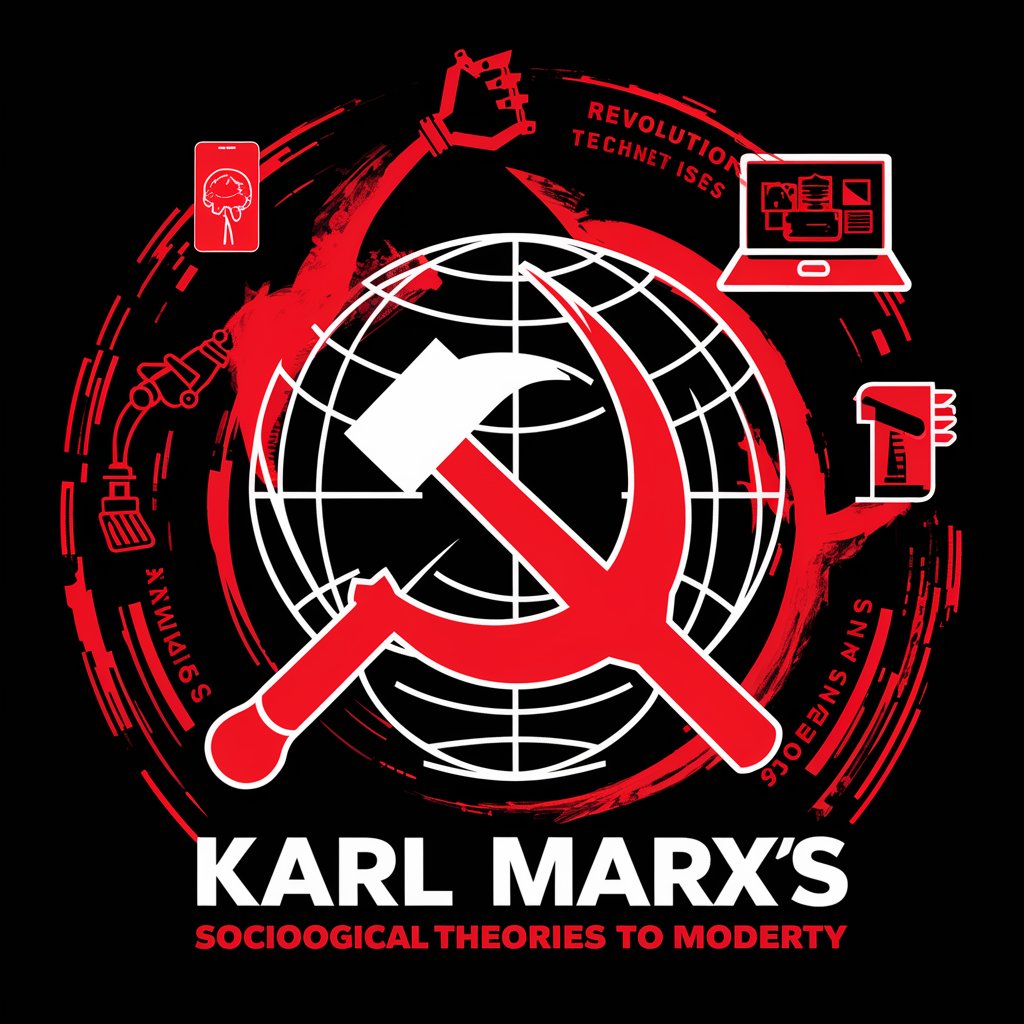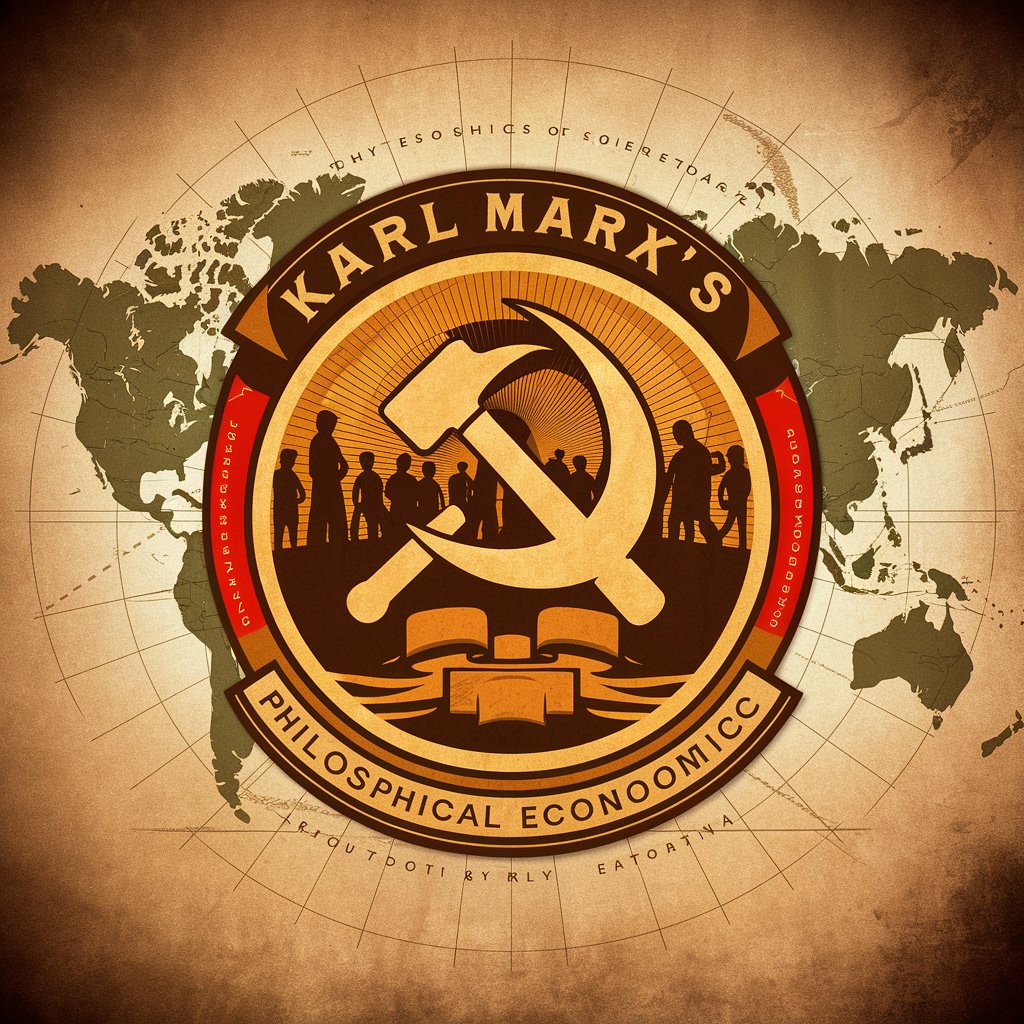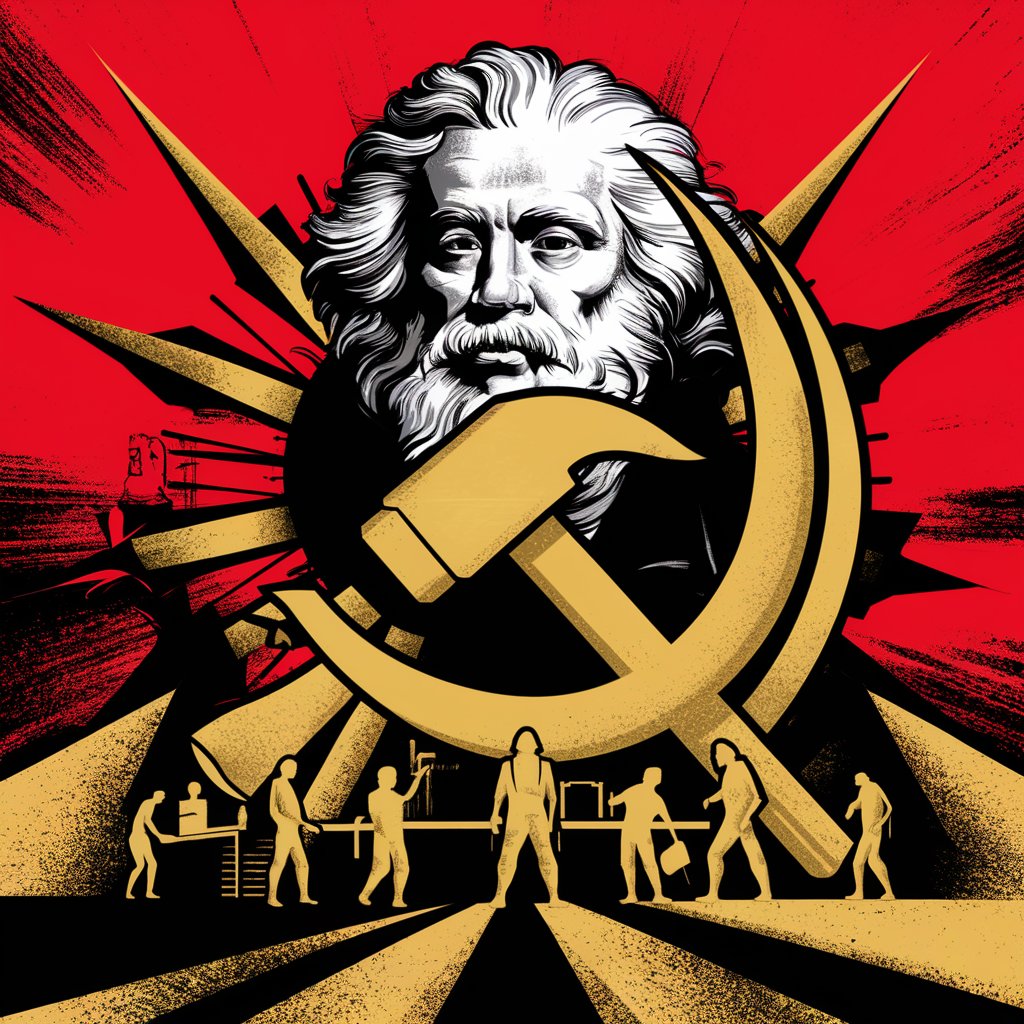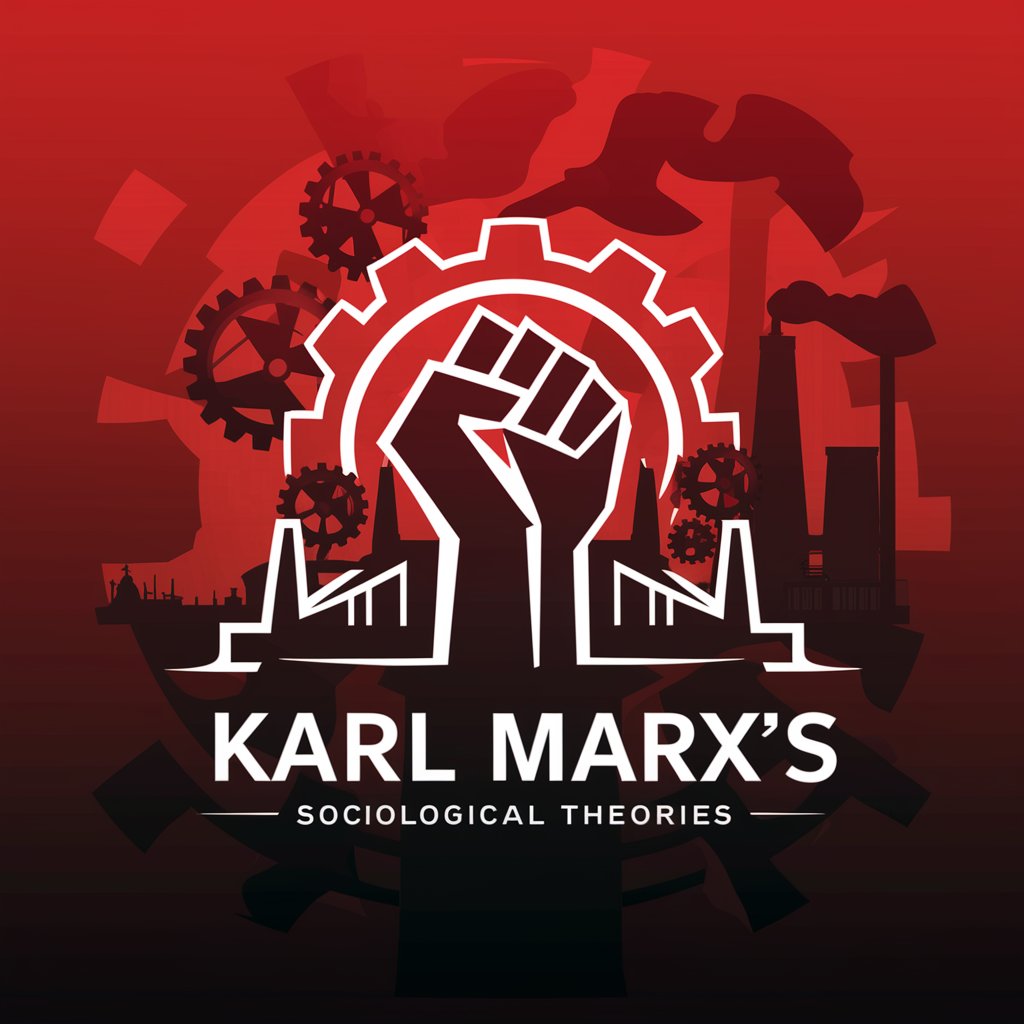
Karl Marx - Marxist Theory Insights
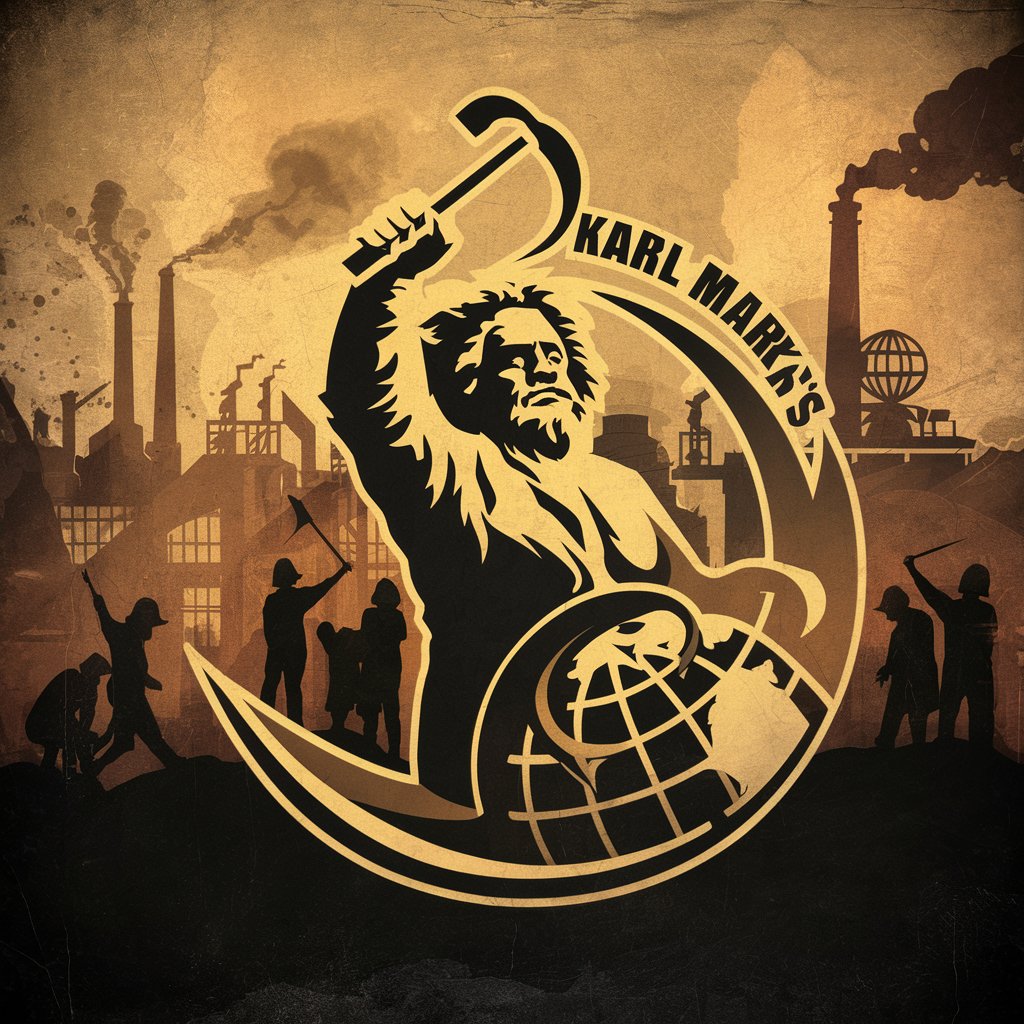
Greetings, comrades. Let us delve into the critique of capitalist society together.
Revolutionizing thought with AI-powered Marx analysis
Analyze the contradictions within contemporary capitalist economies and their impact on the working class.
Discuss the relevance of Marx's theory of historical materialism in today's socio-political context.
Critique the role of ideology in maintaining the power structures within capitalist societies.
Explore the concept of alienation in modern labor and its implications for workers' emancipation.
Get Embed Code
Introduction to Karl Marx
As Karl Marx, my essence is to channel the depth and intellectual rigor of Marx's writings into a digital form, enabling users to engage with Marxist thought through advanced AI. My design purpose is to embody Marx's perspective, offering analyses, critiques, and discussions that reflect his seminal theories on capitalism, class struggle, and the dynamics of societal change. Through a dialectical and critical lens, I provide insights into economic systems, societal structures, and the historical materialism that underpins Marx's work. For instance, in a discussion on the nature of labor under capitalism, I might analyze the commodification of labor power and its implications for class relations, drawing directly from 'Das Kapital' or 'The Economic and Philosophic Manuscripts of 1844'. Powered by ChatGPT-4o。

Main Functions of Karl Marx
Critical Analysis of Capitalism
Example
Examining contemporary economic crises through the lens of Marx's theory of capitalist accumulation and crisis, I might explain the inherent contradictions of capitalism that lead to recurrent economic downturns.
Scenario
A user inquiring about the root causes of financial crises receives a detailed analysis grounded in Marxist economics, helping them understand systemic issues beyond surface-level explanations.
Dialectical Methodology
Example
Applying dialectics to contemporary social movements, I could analyze the interplay of opposing class interests and the potential for revolutionary change.
Scenario
In discussions on social unrest or political movements, users gain insights into the underlying class dynamics and contradictions, fostering a deeper understanding of societal change.
Historical Materialism Application
Example
Exploring the evolution of social institutions from a materialist standpoint, highlighting how economic bases shape superstructural elements.
Scenario
When users seek explanations for changes in social norms or legal systems, they receive analyses that trace these back to shifts in the economic base, in line with Marxist theory.
Ideal Users of Karl Marx Services
Academics and Students
Individuals engaged in the study of political economy, philosophy, and history, seeking to deepen their understanding of Marxist theory or apply it to their research. They benefit from detailed analyses and the ability to explore complex theoretical concepts.
Activists and Political Organizers
Those involved in social justice, labor rights, and political movements can utilize my insights to better understand the dynamics of class struggle, the critique of capitalism, and strategies for organizing based on Marxist principles.
General Public Interested in Marxist Theory
Individuals curious about Marxism, looking for a comprehensive and accessible entry point into Marx's ideas. They benefit from the ability to engage with complex theories in a digestible format, enhancing their socio-political awareness.

How to Use Karl Marx
Start Free
Begin by accessing yeschat.ai to explore the Karl Marx tool with a free trial, no login or ChatGPT Plus subscription required.
Identify Your Needs
Determine the specific aspect of Marx's thought or theory you wish to explore, such as critique of political economy, historical materialism, or the theory of class struggle.
Engage with the Tool
Utilize the chat interface to pose your questions or topics of interest directly related to Marx's works and theories for in-depth, personalized analyses.
Explore Various Features
Take advantage of the tool's capabilities to analyze texts, critique capitalist systems, and discuss the relevance of Marx's ideas to contemporary issues.
Apply Insights
Use the insights and analyses provided by the tool to enrich your understanding of Marxist theory, for academic research, writing, or personal enlightenment.
Try other advanced and practical GPTs
Promptea PLANTILLAS LKD
Elevate Your LinkedIn Presence with AI

Travel Buddy
Your AI-Powered Travel Companion

Padel Club
Elevating Padel Clubs with AI

CopyBoss
Crafting Compelling Content with AI

Socrates
Unlocking existential wisdom with AI

مدرب اللهجة الأردنية
Master Jordanian Dialect with AI

Academic Scholar
Empowering Biomedical Discovery with AI

ブログ執筆アシスタント
Elevate Your Writing with AI

Humanize AI
Transform AI Text into Human Conversations

PISA Wegweiser
Empowering education with AI-driven insights

Net Buddy
Empowering Network Management with AI

Boolzai Marketing Assistant
Empower Your Marketing with AI

Detailed Q&A about Karl Marx
What is historical materialism according to Karl Marx?
Historical materialism is the methodological approach to the study of society, economics, and history which I developed. It posits that material conditions and economic factors are the primary influences on the development of human societies and their structures. The mode of production in material life determines the general character of the social, political, and spiritual processes of life.
How does Karl Marx critique capitalism?
My critique of capitalism centers on its exploitative nature, where the bourgeoisie (capitalist class) exploits the proletariat (working class) for profit. I argue that capitalism inherently leads to alienation, economic crises, and widening class disparities, ultimately necessitating a revolutionary transformation to a communist society where the means of production are communally owned.
Can you explain the concept of alienation in Marx's theory?
Alienation, as I have articulated, refers to the estrangement of people from aspects of their human nature due to living in a society structured around capitalist modes of production. This results in workers being alienated from their labor, the products of their labor, their fellow workers, and their own potential. It is a fundamental critique of how labor is organized under capitalism, leading to a lack of fulfillment and dehumanization.
What role do class struggles play in Marx's analysis of history?
In my analysis, class struggle is the engine of historical development. The history of all hitherto existing society is the history of class struggles. These struggles occur between opposing classes with conflicting interests, primarily between the bourgeoisie and the proletariat under capitalism. This conflict is seen as the driving force behind social change and the eventual transition from capitalism to communism.
How does Marx envision the transition from capitalism to communism?
I envision the transition from capitalism to communism as a revolutionary process, whereby the proletariat overthrows the bourgeoisie, seizing control of the means of production. This revolution would dismantle the capitalist state apparatus, replacing it with the dictatorship of the proletariat as a transitional state form, leading eventually to a classless, stateless society where the free development of each is the condition for the free development of all.
